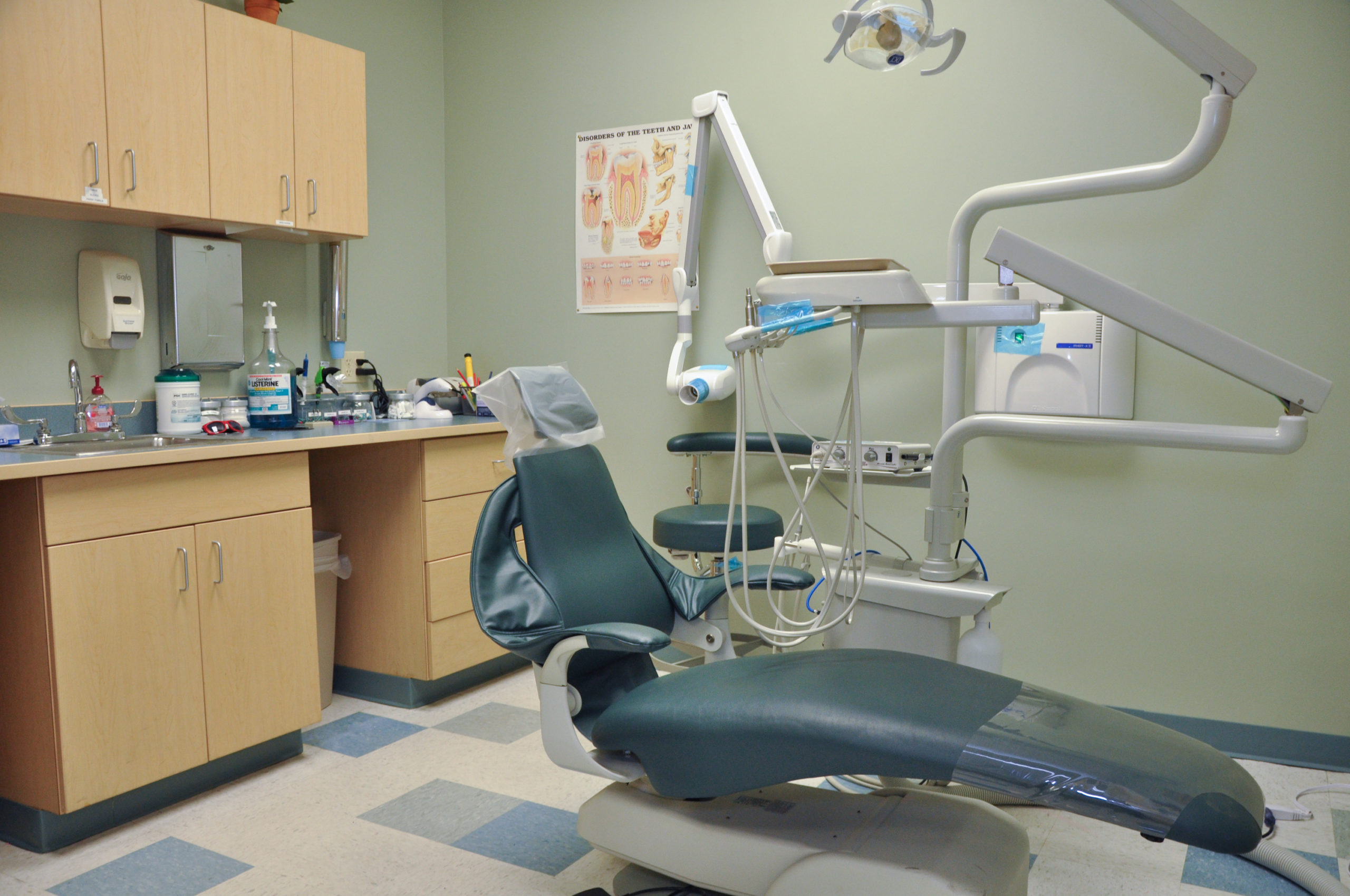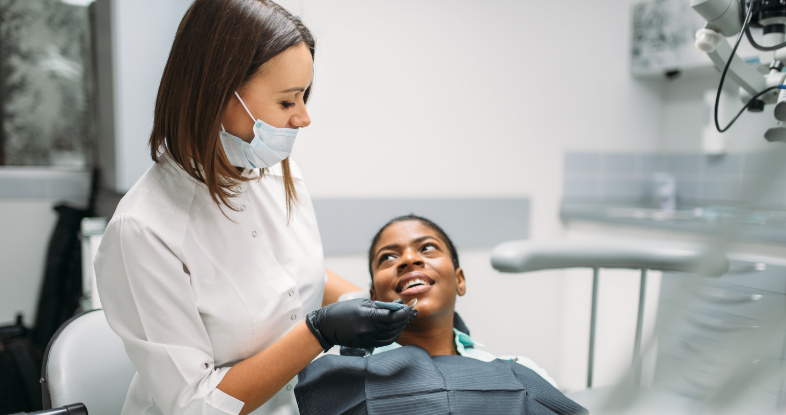Transform Your Dental Experience with Same Day Dental Crown Solutions
Transform Your Dental Experience with Same Day Dental Crown Solutions
Blog Article
Vital Dental Treatment Procedures for Preserving Healthy Teeth and Gums
Preserving ideal oral health and wellness is crucial for total health, and understanding necessary oral treatment procedures is the initial action toward attaining this goal. Regular oral examinations and expert cleanings play a pivotal function in the very early discovery of prospective problems, while daily techniques such as brushing and flossing are basic for combating plaque and food fragments. Additionally, nutritional options substantially affect the wellness of teeth and gums. As we check out these treatments and their effects, it becomes obvious that overlooking any type of facet may lead to unexpected issues. What various other elements should be taken into consideration for thorough dental care?
Normal Oral Examinations
Routine dental check-ups are crucial for preserving ideal oral health and protecting against prospective concerns. These appointments usually take place every 6 months and offer several purposes, consisting of the early detection of dental problems such as tooth cavities, periodontal illness, and dental cancer cells. By determining these problems at their onset, patients can benefit from much less invasive therapies and boosted outcomes.

Additionally, routine examinations supply a possibility for oral professionals to supply tailored guidance on dental hygiene techniques, dietary options, and way of living adjustments that can boost total oral wellness. Developing a regimen of routine examinations promotes an aggressive method to dental care, encouraging people to take cost of their oral wellness and inevitably resulting in a brighter, healthier smile. Disregarding these essential sees can lead to extra serious complications, emphasizing their value in preventative oral care.

Specialist Cleanings
A vital part of keeping dental health is the expert cleaning carried out by a dental hygienist. These cleansings, commonly recommended every six months, are necessary for the avoidance of dental issues such as tooth cavities and periodontal disease. Same Day Dental Crown. Throughout a professional cleansing, the hygienist uses specialized devices to eliminate plaque and tartar accumulation from the teeth and along the periodontal line, locations that regular brushing might miss out on
The procedure begins with a complete examination of the mouth. Following this, the hygienist uses a scaler to carefully scuff away set plaque. This is often followed by a polishing treatment with a sandy toothpaste, which assists to remove surface area stains and smooth the enamel. The hygienist may apply a fluoride therapy to reinforce the teeth and provide additional defense versus decay.
Specialist cleanings not only improve the looks of your smile but additionally dramatically add to overall dental health and wellness. They allow for very early detection of possible troubles, enabling prompt intervention. By prioritizing these cleansings, individuals can make sure that their oral hygiene routine is enhanced by specialist treatment, ultimately leading to much healthier teeth and periodontals.
Daily Brushing Methods
Efficient daily brushing methods are vital for preserving optimal oral health and wellness. Cleaning your teeth a minimum of two times a day, preferably in the early morning and prior to bedtime, websites is vital for getting rid of plaque and protecting against dental caries. Pick a soft-bristled toothbrush that fits easily in your hand and permits easy accessibility to all locations of your mouth.
When brushing, hold the toothbrush at a 45-degree angle to your gums. This setting assists to clean not just the teeth yet additionally the gumline, where plaque can build up.
Do not neglect to clean the internal surface areas of your teeth, as well as your tongue, to get rid of germs and refresh your breath. Developing a constant cleaning routine will dramatically add to the long-lasting health of your teeth and gum tissues.
Efficient Flossing Techniques
Flossing is an essential element of a detailed dental hygiene regimen, playing a vital duty in eliminating food bits and plaque from locations that a toothbrush can not reach. Efficient flossing approaches can significantly boost the health of your teeth and gums, protecting against tooth cavities and periodontal disease.
To start, use approximately 18 inches of floss, winding the ends around your center fingers, enabling better control. Hold the floss securely between your thumbs and index fingers, gently directing it in between your teeth with a sawing activity. Avoid snapping the floss, as this can trigger gum damage.
Once the floss reaches the gum tissue line, curve it right into a C shape against one tooth and slide it underneath the periodontal line delicately, guaranteeing to clean both sides of the tooth. Repeat this procedure for every tooth, making use of a tidy section of floss as you move from one tooth to the next.
It is recommended to floss a minimum of daily, preferably before cleaning, to make best use of plaque elimination. Including effective flossing techniques right into your dental hygiene regimen will certainly add to total dental wellness, making it an important technique for preserving healthy and balanced teeth and gums.
Nutritional Considerations for Oral Wellness
Numerous studies demonstrate that nutritional considerations play a crucial role in keeping dental wellness and avoiding dental concerns. A healthy diet plan abundant in vital nutrients is essential for the development and maintenance of healthy teeth and gums. Secret vitamins and minerals, such as phosphorus, vitamin, and calcium D, contribute significantly to the toughness of tooth enamel and the general stability of the mouth.
Foods high in anti-oxidants, like veggies and fruits, boost periodontal health and wellness by reducing inflammation and combating oxidative anxiety. image source Furthermore, adequate hydration is critical; water not just helps in the production of saliva, which reduces the effects of acids and gets rid of food bits, yet likewise help in maintaining a well balanced oral microbiome.
Alternatively, too much intake of acidic and sweet foods can lead to dental cavity and erosion. Limiting these foods, in addition to practicing good dental health, is important for oral wellness. Additionally, including foods high in fiber can stimulate saliva production, which is beneficial for oral wellness. Thus, an alternative technique that includes mindful dietary view website options can dramatically contribute to the prevention of oral problems and the promotion of general oral health.
Final Thought

These consultations typically happen every 6 months and serve multiple functions, including the early discovery of oral troubles such as cavities, periodontal illness, and dental cancer.During an exam, a dental expert carries out a comprehensive exam of the teeth, periodontals, and bordering oral frameworks.Moreover, regular check-ups give a chance for dental professionals to supply tailored recommendations on oral hygiene practices, nutritional selections, and lifestyle alterations that can boost general dental health and wellness.In summary, keeping healthy teeth and periodontals necessitates adherence to necessary oral treatment procedures. Regular oral check-ups and expert cleanings promote early detection of oral concerns and the elimination of plaque and tartar, specifically.
Report this page